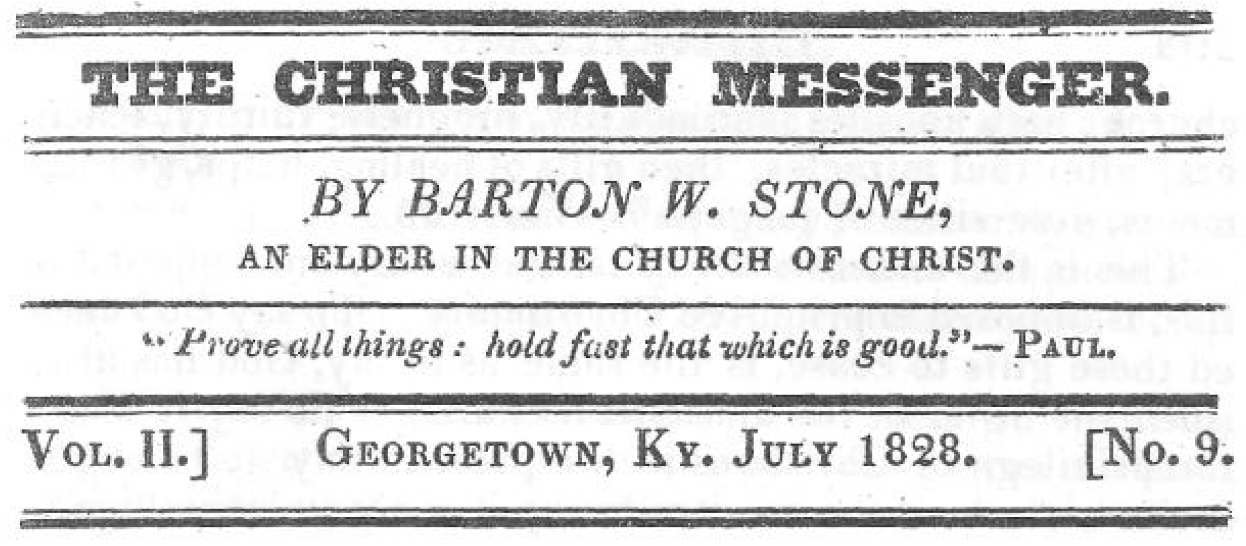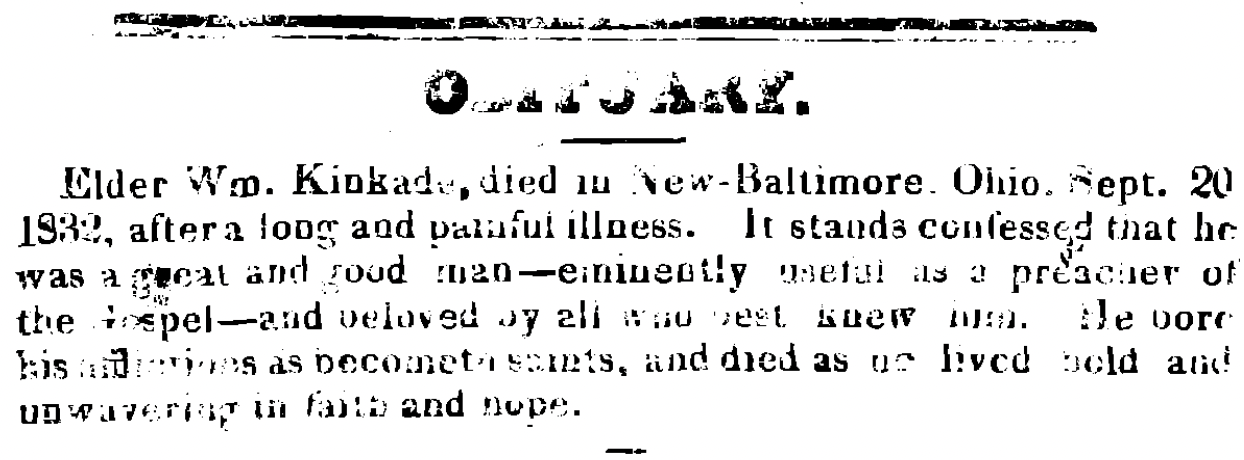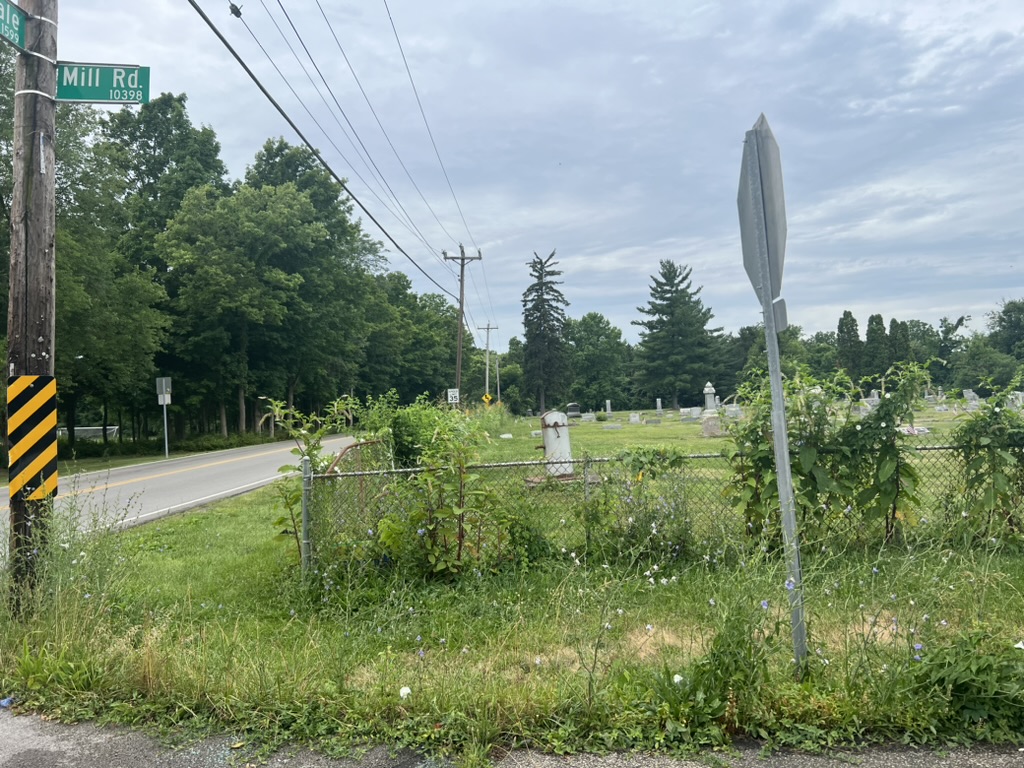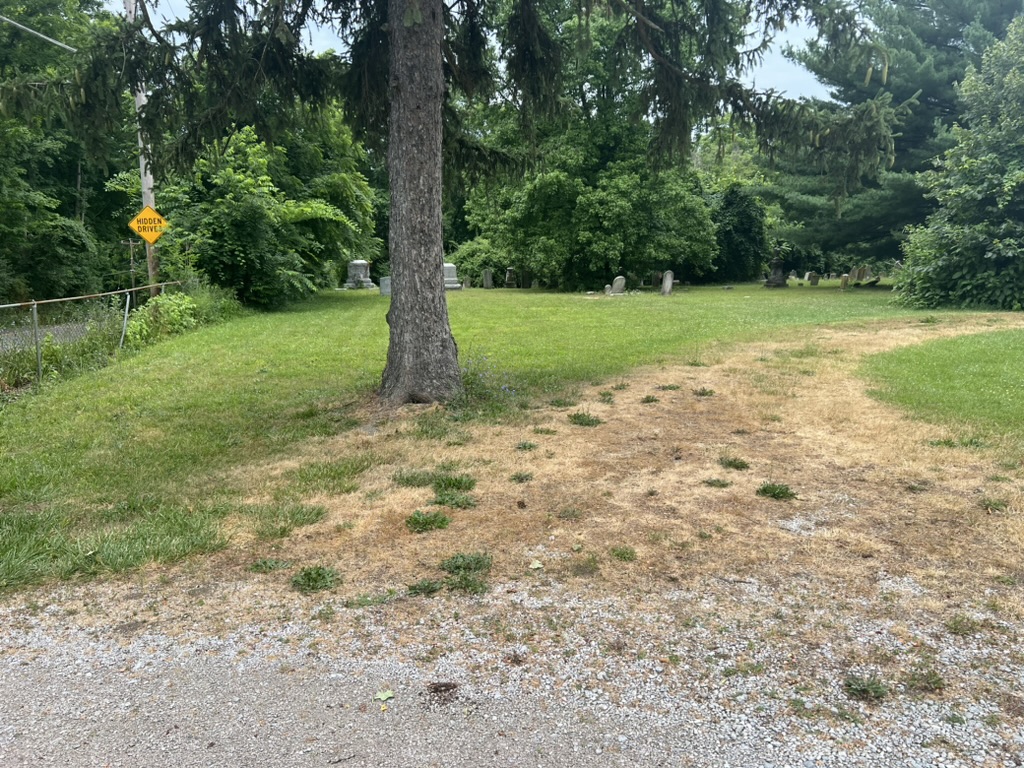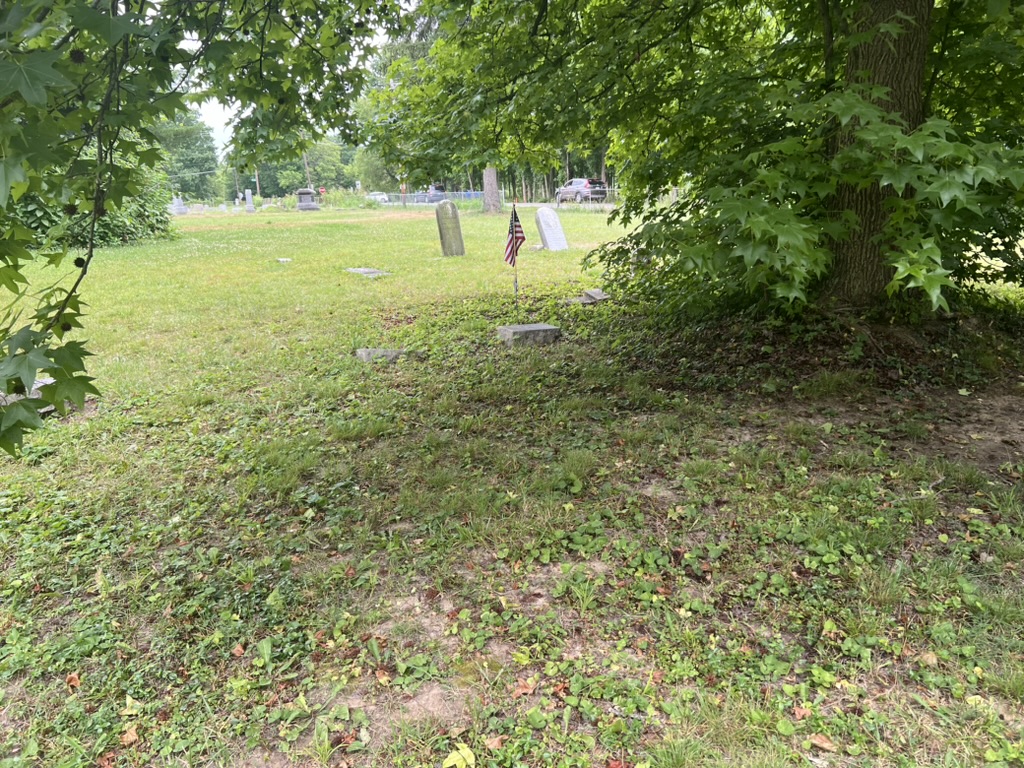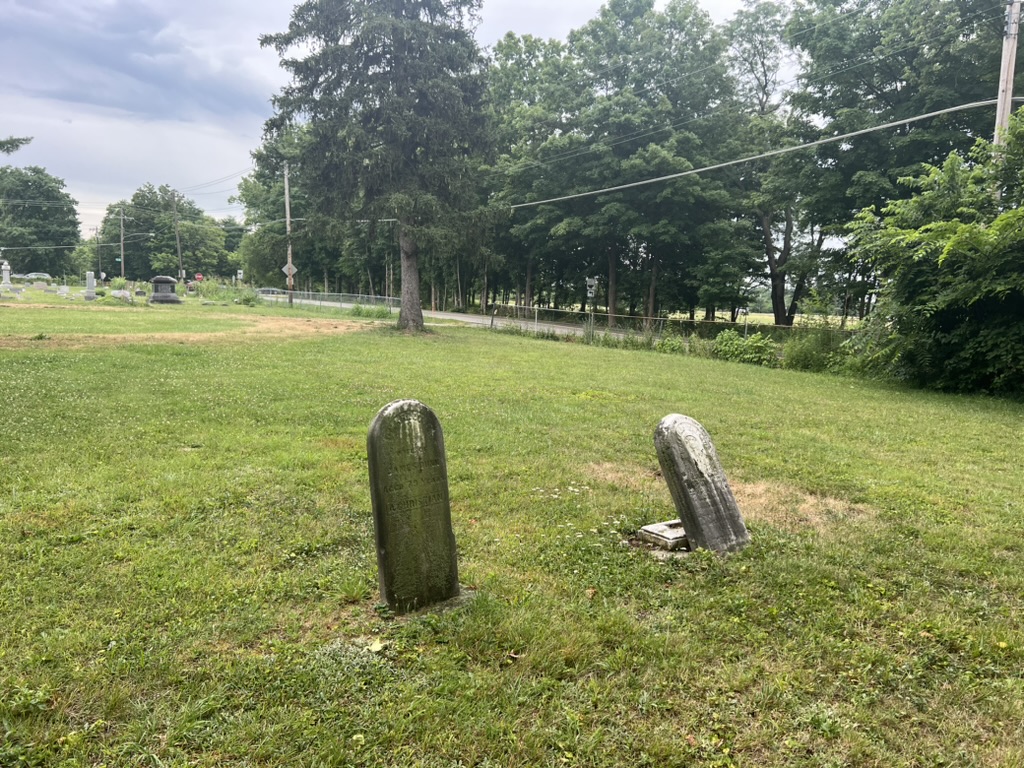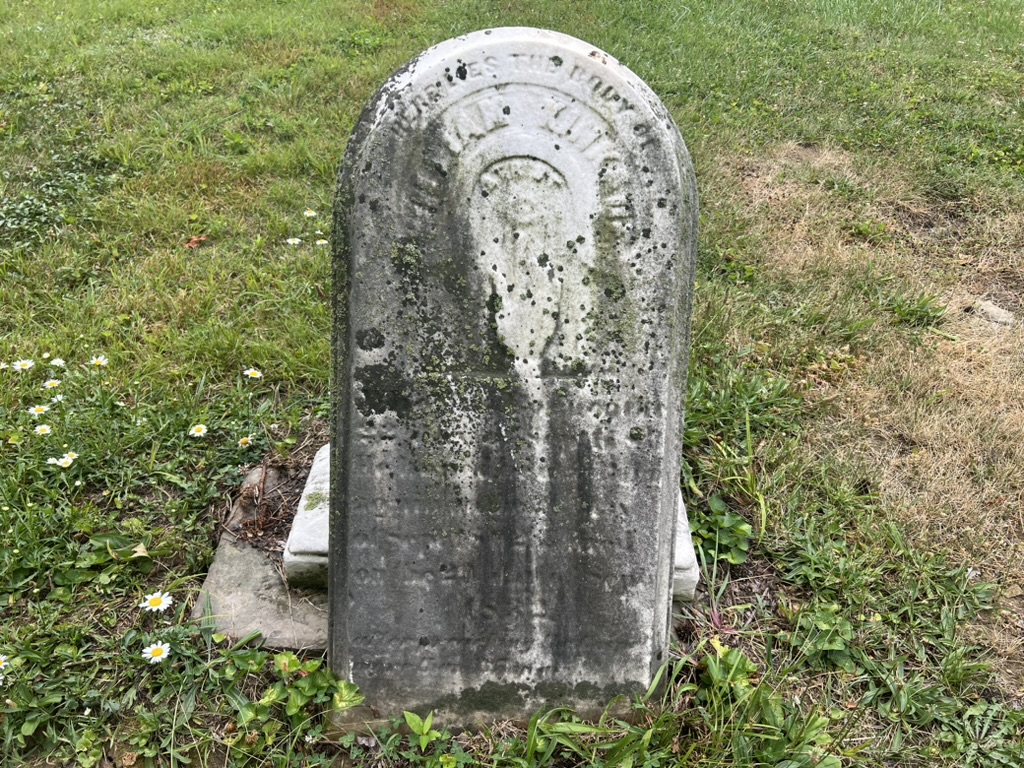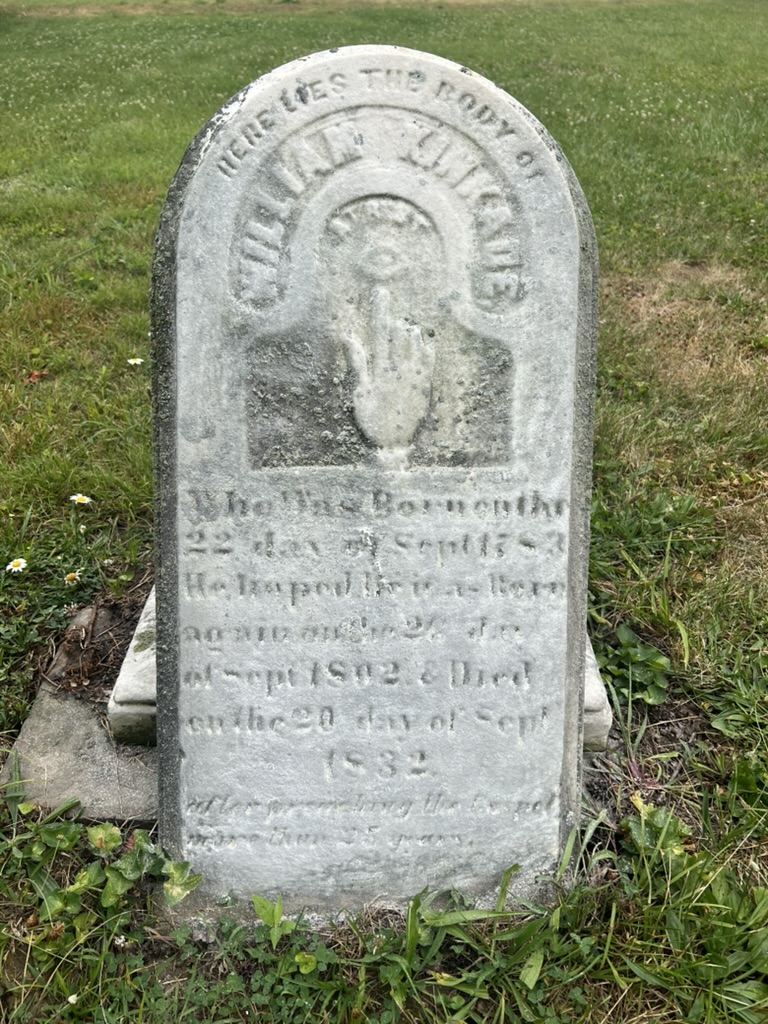William Kincade
1783-1832
![]()
ELDER WILLIAM KINKADE
His early life and profession of Christianity written by himself. His Ordination. Becomes acquainted with the Latin, Greek and Hebrew languages. His Sermon at Joe. Craig's. His Sermon at Caneridge. His Settling in Illinois. He is a member of the State Convention. Slavery Prohibited. His Marriage. Sickness, and Death of his Wife. His Journey to New York. Writes the Bible Doctrine. His Character as a Writer and Preacher. His Return to Ohio. His Afflictions. The Amputation of his Leg, His Last Sickness, and Death. His General Character.
Elder William Kincade in his preface to his Bible Doctrine has given a sketch of his early life, education, and profession of Christianity, which we here insert for the satisfaction of our readers.
To The Reader:
The reader may wish to know how I got in possession of my present views of religion. I was born in what was then called the backwoods, in western Pennsylvania. My parents moved to Kentucky when I was not more than three or four years old. I received my first ideas of religion from my mother, and I have no doubt but that her prayers and instructions were the principal means which made me a Christian.
She told me there was a God and a devil, a heaven and a hell, and I believed her. She taught me the difference between righteousness and sin, told me that a virtuous life would secure the favor of God, and that a vicious course would not fail to draw on me his fiercest displeasure. She learnt me the Mother's Catechism, and taught me that unless I would pray to God, I could not be righteous in his sight. A belief of these things made me religious, and when I was not more than six years old I frequently went into the woods, or some other secret place, and kneeled by myself in prayer to God, when at the same time I did not know that any other person ever did so, for although my mother had taught me to say my prayers when I went to bed at night and when I got up in the morning, she never told me to go into secret and pray by myself. I was raised in the Presbyterian Church, and still think they are the best religious sect I know, except the Quakers, and in some respects, they excel them. I learned the Presbyterian Catechisms but never believed near all of them.
The Bible was my school-book, and I still think it is the best school-book in the world. In learning my lessons in the New Testament, I took up the idea that God was the greatest, and oldest person in existence, and that Jesus Christ was the next greatest: but I was just as far from thinking that he was as old or as great as his Father, as I was from thinking that I was as old or as great as my father.
I was under conviction for sin almost all my life, and spent my days in sinning and repenting, till the great revival took place in the Presbterian Church, in 1800 and 1801, when I was brought under still deeper conviction for my sins, and my trouble of mind increased till the 26th day of September 1802, and then at a large camp-meeting, God converted my soul; he removed the burden of guilt from my mind, shed abroad his love in my heart, and filled me with joy unspeakable and full of glory.
I then refused to call myself by any name but that of Christian, bore a public testimony against all party names, and declared that I would take no other book for my standard but the Bible. I did not then know that any other person would unite with me to have no name but Christian and take no standard but the Bible, but I thought it was right, and therefore determined to pursue it, let the consequence be what it might. I could have been a Baptist, a Methodist, or a Presbyterian preacher. The two latter sects both strongly solicited me to be a preacher among them, but I utterly refused, because I thought it would be better for me to go alone on the word of God, than to put myself under obligation to believe and preach any system framed by fallible men. About that time the Presbytery where I lived licensed near thirty preachers that had not a liberal education, but this has since caused a division among them, and given rise to a new sect called the Cumberland Presbyterians.
I have since ascertained that in different parts of America, there were hundreds who started about the same time that I did, and although they were generally unknown to each other, they took the same ground, and were actuated by the same Spirit. According to the best of my recollection it was about three years after I took this stand before I heard of Marshall, Thompson, Stone, or any other member of the Springfield Presbytery.
I was raised on the frontiers of Kentucky, in the midst of the Indian war, where men were only respected in proportion to their valor and skill in fighting Indians and killing wild beasts, and I verily thought to be a brave, skillful warrior, and a good hunter was the greatest honor to which any man could attain.
When I got religion I had but little learning: I could barely read and write, and that but very indifferently. I then thought and yet think that God then called me by His Holy Spirit to preach the Gospel. On this occasion I had made a great sacrifice. I laid aside my leather hunting-shirt, my rifle-gun, and butcher-knife, and left my father's house and my beloved woods to travel and preach the Gospel. But before I started to preach, I thought it was necessary to buy a Bible, and as I had no money, I agreed to work for a Presbyterian man for one. He let me have it for five days' work, and although I had to grub bushes in a briar patch, I think it was the best bargain I ever made; I have it yet. It is a little pocket Bible without note, comment, or marginal reference. By reading it I formed my present views of religion, (which I committed to writing in all their essential points), without the assistance of commentators, and before I had seen a concordance, nor had I at that time ever read a word from the pen of a Unitarian. After I had preached a while I went to school to Doctor Stubs, who taught an academy in the neighborhood of Newport, Kentucky; there I got some more learning. Boarding and schooling were both very high, and I paid my way by working day's works.
Although I have been a scholar in several schools, have traveled and preached more than twenty years, read several books, conversed with many men famed for wisdom, had many private and public disputes on various doctrines of religion; still all I have learned has only confirmed me in the great and leading truths of religion, which I first learned by reading the little Bible that I earned by grubbing in a briar patch. I now feel thankful to God that the independence of mind which grew up with me in my native woods has never forsaken me. I have at all times dared to oppose any thing that I did not think was right. Although this course has always created me enemies, and rendered me unpopular, still I glory in it, because I think it is the course pursued by the ancient prophets, and by Christ and his apostles.
I disown all party names. I do not profess to belong to any sect of Christians. I fellowship all good people of every name without regard to how much they may differ from me in doctrines. I have written this book as the sentiments of no sect nor denomination of people. It is a sketch of my own views. If you are a Christian, or a sincere seeker of religion, I remain your brother, in the patience, tribulation, and hope of the kingdom of Jesus Christ.
WILLIAM KINKADE
A Stranger and Pilgrim on Earth.
May God guide us into all necessary truth.
New York, July 1, 1829.
________________________
William Kinkade commenced public speaking under circumstances that would have borne down and discouraged any man of an ordinary resolution, but he possessed a mind capable of surmounting the most obstinate difficulties.
When he commenced preaching, his education was very limited; his appearance, gestures, and manner of expression, were all uninteresting: all that seemed to recommend him were his upright conduct, his honest zeal for the truth, and his fervent devotion to the cause of God. These traits in his character won the affections and encouragement of some of the wise and good. They thought they could discern in him some strength of intellect, that by proper cultivation might develop itself to the advantage of society. He was ordained to the work of the ministry by David Purviance, and some other elders about the year, 1809. The writer was present at his ordination, and was much, displeased with the officiating elders for setting forward a man (as he thought) so poorly qualified to be useful and respectable as a minister. But he was afterwards perfectly ashamed of himself when he discovered in William Kinkade, a giant mind, well stored with science, philosophy, and Biblical knowledge equal to any preacher of our day.
In the school of Doctor Stubs he became acquainted with the Latin and Greek languages. He paid for his boarding and instruction with the labor of his own hands. After this he went to Lexington. Kentucky, and boarded in the family of Elder Stone, and studied the Hebrew language under a Prussian Doctor, a Jew of great learning. He taught by lectures. In a very short time he became acquainted with this language, so that with the assistance of a lexicon he could read and translate the scriptures with ease. By this time he was an excellent linguist, and had stored his mind with a fund of useful knowledge. "He conferred not with flesh and blood," but gave himself entirely to the work of the ministry. He traveled in Ohio, Kentucky, and Tennessee, proclaiming gospel day and night: he carried it without money and without price; he was shamefully neglected by his brethren: he faithfully "ministered to them in spiritual things," but they neglected to minister to him in carnal things.
In the summer of 1810, he traveled from Ohio to Fayette County, Kentucky, in company with David Purviance to attend a protracted meeting and conference. After they arrived, an eccentric Baptist preacher of considerable wealth and some notoriety, known by the name of "old JOE CRAIG," came to D. Purviance and said to him. "Come, I want you to go home with me and hold meeting at my house tonight. I have killed a beef and have an abundance of horse feed, and we can accommodate all that will come. Bring any of your friends along with you, that you please; we cannot all come here at night." It was agreed to, and David Purviance took William Kinkade and some other friends with him, and they made their way to old Joe's, and found all things right: night came on and a house full of people were assembled. Billy Kinkade was put up to preach; he was an entire stranger but poorly clad, and had been traveling some days, and his clothes not very clean, and upon the whole he made quite a diminutive appearance. The people stared and looked somewhat disappointed, but it was not long before Billy got into the merits of his subject, and preached a very animating and interesting sermon, and astonished all present who never heard him before. Old Joe got very happy, and after Billy closed his sermon, he got up to his feet and began to rub the side of his head with one hand in a peculiar manner, and commenced praising God in a whining tone of voice, and said, "O! BLESS GOD! Our blessed Saviour rode into the city of Jerusalem on a POOR, LEETLE, SHABBY ANIMAL, BLESS GOD! I have been trying to get a blessing ever since this meeting commenced, but I could not get it; but, Bless GOD, he rode into my poor soul tonight, on the poor, LEETLE, shabby PREACHER, O! bless God." The next morning he took Billy to one side and gave him a dollar.
Brother Kinkade, like the other leaders in this reformation, brought some of the traditions of the fathers with him, and for a short time practiced infant sprinkling. At one time he was preaching in a grove; a brother brought his family of children forward to do for them, after the custom of the fathers. One little boy finding some objections in his mind to this ceremony, ran off a short distance and climbed up a sapling. His father followed him and told him to come down; he said he would not. His father ordered him down; he swore, profanely, he would not come down. When brother Kinkade heard THAT, he said, "I will not baptize that one." In a short time after this he became convinced that the apostolic mode of baptism was immersion, and that believers were the only legal subjects, and consequently, he practiced accordingly.
About this time, Robert Marshall and John Thompson began to retrograde towards Presbyterianism, and took several young preachers with them; but William Kinkade stood firm on the BIBLE, and plead its all-sufficiency to govern the church.
He left Ohio, and bought a small tract of land in Lawrence County, Illinois, and commenced a farm while that country was under a territorial government. Illinois was admitted into the Union in 1818. William Kinkade was a member of the State Convention when the constitution was formed. It is confidently believed that it was through his instrumentality that slavery was prohibited by the constitution of that State. Never did a man exert himself more nobly in any cause than he did in this. The contest was warm on both sides. The friends of slavery were determined to incorporate it with the future destinies of the State. But William Kinkade (having lived in a slave state) was well acquainted with the principles and influence of negro slavery, and he was well prepared to defend the rights of an injured and down-trodden race. He also ably and clearly showed the deleterious effects of slavery on community, particularly to the rising generation. He drew the contrast between the prosperity of the slave states and that of the free states. He beautifully portrayed the rising prosperity of those states where every improvement and enterprise are forwarded by voluntary labor. He also showed positively that slavery was incompatible with the principles of our republican institutions, and above all, that it was at war with the Christian religion. The friends of slavery became much exasperated, and threatened to take his life. He told them he would as leave die in that cause as any other, and he supposed heaven was as near Illinois as any other place. The friends of liberty finally succeeded in barring from this young and flourishing state this wretched curse of both white and black. Elder Kinkade in speaking of this struggle always appeared to look upon it as the most useful and interesting part of his life. He was afterwards elected to a seat in the Senate of that state, and served two sessions. He was one of the most clear-headed and able politicians of his day.
In the year 1823, he returned to Ohio to seek for a wife, and was married to Anna Gregory, daughter of Samuel Gregory, of Warren county. He moved his wife to his little farm in Illinois. He continued to cultivate the soil, and preach the gospel as much as he consistently could; but he did not long enjoy his peaceful home. His wife's health failed, and being entirely away from all her connections she became discontented, and in about three years after marriage he removed her back to her father's in Ohio, where she continued but a few months till she sunk in death, under a pulmonary consumption. While Elder Kinkade was moving his wife from Illinois, he received a very bad hurt in his side by the upsetting of his carriage that he never entirely recovered from during his life, but continued to suffer much from a pain in his side. In the year 1828, Elder Kinkade traveled on a preaching tour to the east, and continued about two years, part of the time in New York City; during this time he wrote and published that valuable and interesting work, entitled Bible Doctrine. This book is original, and it is a fair sample of the man. It is masterly and hard to refute. He wrote considerable of this work standing on his knees; he suffered so much from pain in his side that he could not sit to write; but his determined and enterprising mind was able to soar above difficulties that ordinary minds would have sunk under.
His writings are plain, logical, and argumentative, and his style so simple that a child can understand him.
As a speaker, he was not naturally very eloquent, but his manner was forcible, and his sermons were sensible, instructive, and systematic, and his arguments so firmly laid and so well arranged, that they were hard to refute. His appeals were energetic and powerful, and with all he was plain, humble and unassuming, and to cap the climax, he was one among the most faithful and honest men in the world. Well did Pope say, "An honest man is the noblest work of God."
Brother Kinkade had something of a poetical genius, but he had no tune; he could not sing or even imitate singing; yet he was resolute "to try and try again."
He returned from New York to Ohio, (the writer believes) in the fall of 1829 in very poor health. He was suffering from something like a rheumatic affection; some of the doctors were of the opinion that it originated from a disordered state of the lungs. It finally settled in one of his knees; he suffered excruciating pain. His knees became stiff, and his leg stood at a right angle, and he was confined to his room, for some months, at his brother-in-law's, in Butler County; at length he concluded to have his leg amputated above the knee. He sent for a surgeon of great celebrity, and the time was set to amputate the limb. The doctor invited many physicians to see the operation; they collected at the appointed time. The surgeon spoke very lightly of the task, and a great deal of levity seemed to be manifested among those in attendance. Brother Kinkade observed all that passed, and became dissatisfied with such conduct; he felt that it was treating him in the midst of his sufferings with contempt and impoliteness; and about the time they got ready for the operation, he told them he would not have his leg taken off at that time. They were much disappointed, and left. He then immediately sent to Hamilton, and called two respectable physicians, and had his leg amputated in private. He said he did not wish to have a multitude there to sport over his suffering. He said to the surgeons when in the operation, "TAKE CARE, if you do not mind you will hurt me as badly as the pain in my knee does."
He bore the operation without any particular moans or signs of distress; afterwards the wound healed very fast, and his friends rejoiced in believing that they would yet enjoy his society, and that the church would be blessed with his labors and counsels. In the course of a few months he was able to be moved to his sister's, (Mrs. Pottenger's), a distance of 18 miles. But, alas! our hopes were soon blasted. During the time he was suffering with his knee and the wound caused by amputation, he suffered but little with the former pains in his side and breast; but as soon as the sore (from amputation) healed, the pain in his side and breast returned, accompanied with a severe cough. He was destined to suffer for several months longer, under a seated pulmonary consumption.
The writer visited him frequently in his last affliction. He always found him pleasant and cheerful, and ready to converse freely and philosophically, on any subject of interest. He spoke of death with composure, and made full calculations to meet it in a short time. He said he would not give his hope of immortality and eternal life for all the world, yet he said that sometimes his mind was afflicted with clouds and doubts. The writer was of the opinion that these difficulties arose in consequence of the failure of his bodily strength; this of course had some effect on his mind. He had been in the practice of reasoning and philosophizing on subjects entirely beyond the reach of ordinary intellects. His doubts originated in matters that never perplexed common minds, for they never once thought of them. The mind of Kinkade was always aspiring; from an ignorant, illiterate boy, he arose within a few years (and that by his own exertions) to be a profound philosopher. He told his friends repeatedly that he would die about the 20th of September, and gave directions concerning his funeral, and where he wished to be buried. He requested his friends not to dress in mourning after his death; he said they ought rather to rejoice, to think he was free from all his sufferings, and gone to rest. He wrote the following plain and humble Epitaph, as near as possible to be engraven on his tombstone:
"Here lies the body of William Kinkade, who was BORN on the 22nd day of Sept., 1783. He hoped he was BORN again on the 26th day of Sept., 1802, and died on the 20th DAY OF Sept.,1832, after preaching the gospel more than 25 years."
About one week before he died, he asked his sister to give him his shaving utensils; he said he would shave himself for the last time. Within a few hours after he was done shaving, he became delirious, and continued so until he died: while in this situation he was perfectly pleasant, and as innocent as a child. He appeared to be pleased with every thing about him. and continued so till his demise.
He was interred in the grave-yard at Burlington, Hamilton County, Ohio, after being much afflicted for about four years, and nearly half that time measurably confined to his bed.
Elder Kinkade was not as popular as some other preachers of far inferior talents. One great reason was he was the HONEST man RIGHT out. Errors, in both doctrine and practice, "he handled without gloves.'' He could dislike nothing without showing his contempt to it. He would not excuse a wrong in his best friend any sooner than in his worst enemy: a fawning sycophant and a superficial pretender he alike despised. But a plain, unassuming man, whether illiterate or a philosopher, could approach him, and find him one of the most humble, intelligent, and instructive men in the world. He was one of the best companions for young preachers: he would in meekness and love reprove their faults, and correct their errors, and like a father, instruct them in the principles of the Christian religion.
He was always firm to his purpose, alike unmoved by FLATTERY or TERROR. He knew no fear. He was not among those who say and do not. He was truly punctual in all things. In short, he was a great and good man.
-Levi Purviance, The Biography of Elder David Purviance, Appendix, Chapter 6, pages 202-211
![]()
An Exerpt From Recollections of Men Of Faith - John Rogers
An anecdote is told of Bro. Shidler, which ought to be preserved because of the excellent moral it teaches. He was a very modest man-had very humble conceptions of his own abilities. His education was poor, and when in 1810 he was set apart to the work of the ministry he felt that he was very poorly furnished for so great an undertaking. He was, however, able to teach his neighbors, and was being very successful in building up the cause. Connected with the Christian Church of that time was Elder William Kincade. He entered with great spirit and ability into the Reformatory movement in the beginning of this century with Stone and his compeers. He was a self-made man, of fine native talents, considerable learning, and mighty in the Scriptures-a living, walking concordance, and withal somewhat eccentric. About the time Bro. Shidler commenced preaching, Bro. Kincade preached in his neighborhood. Everybody went to hear the great man-Bro. Shidler among the rest. He had never heard such preaching. It seemed to him he knew the Bible by heart-he knew everything and he himself knew nothing. He went home, measuring himself by Kincade, and therefore overwhelmed with a sense of his ignorance and utter unfitness for the work of preaching. He said to himself, "If I could preach like Kincade, I might preach; but ignorant as I am I had better quit it." For near a week he was miserable, under the temptation to quit the ministry, because he could not preach like Kincade. He mourned, and wept, and prayed before the Lord, and at last was delivered from his trouble thus. Said he "Every man can't be a great preacher-every man can't preach like Kincade-some preacher in the world must be the least of all the preachers, and if it pleases God that George Shidler should be the man, be it so. God helping me, therefore, I will try to occupy my one talent till the Master comes." From this time forward he was happy in doing what he could in the vineyard of the Lord.
-This was recalled by John Rogers about an Indiana preacher by the name of George Shidler. Recollections Of Men Of Faith, by William Rogers, pages 167, 168.
![]()
From the Gospel Luminary.
A RESTORATION OF THE ANCIENT ORDER OF THINGS
by William Kincade
When I speak of the ancient order, I mean the order of the New Testament; one inch short of that, will not satisfy me. In that book the church is called the body of Christ. "And gave him to be head over all things to the church, which is his body." Ephes. i. 22, 23. "Now ye are the body of Christ; and members in particular." 1 Cor. xii. 27. Of this body Christ is the head; the members of the church possessing different spiritual gifts; its principle of life is the Holy Spirit, by which the whole body was brought into existence, is regulated, and kept in action. Hence Paul says, For to one is given by the Spirit the word of wisdom; to another the word of knowledge by the same Spirit: To another faith by the same Spirit. To another the gifts of healing by the same Spirit: To another the working of miracles; to another prophecy; to another divers kinds of tongues; to another the interpretation of tongues. But all these worketh that one and the self-same Spirit, dividing to every man severally as he will. For as the body is one, and hath many members and all the members of that one body being many, are one body, so also is Christ." 1 Cor. xii. 8-12. Paul considers these different spiritual gifts as being, each in its place, as necessary and useful to the church, as the different members of the human body are to a man. Hence he says, "If the whole body were an eye, where were the hearing? If the whole were hearing, where were the smelling? And if they were all one member, where were the body?" Verses 17. 19. The government, or discipline of the church, was, among the primitive Christians, administered by divinely inspired men, whom God placed in the church, each one in his proper order. Hence Paul says. "And he hath set some in the church; first, apostles; secondarily, prophets; thirdly, teachers; after that miracles; then gifts of healing, helps, governments, diversities of tongues."— Verse 28.
This is the ancient order of things; every one opposed to this, is opposed to primitive Christianity. To say God caused these gifts to cease, is the same as to say, God has abolished the order of the apostolical church. To say it is not the privilege of Christians in the present day to belong to such a church, is the same as to say it is not our privilege to be members of Christ's spiritual body, because the church here described, is the body of Christ. To divest the church of all these spiritual gifts, would be to take from the body of Christ the senses of hearing, smelling, seeing, &c. To say these miraculous gifts are not necessary nor useful to the church in the present day, would be as absurd as to say, eyes, ears, hands, &c. are not useful to a man. To say, we only need one of these gifts, viz. faith, would be to reduce all the members to one. Then, "If all were one member, where were the body?"
In Ephesians iv. 11-16, Paul describes the church thus: "And he gave some apostles; and some, prophets; and some, evangelists; and some, pastors and teachers, for the perfecting of the saints, for the work of the ministry, for the edifying of the body of Christ; till we all come in the unity of the faith, and of the knowledge of the Son of God, &c." From this passage, we learn two things relative to the primitive church; first, that their ministers were the special gifts of God; and secondly, that those ministers were parts of Christ's body, were given to unite the saints in faith and love, guard them against wavering, and enable them to edify themselves in love. If infinite wisdom saw these gifts were necessary to make the church perfect in that day, who has authority to say the church can be perfect without them in the present day? Surely the church has as great need of being united, built up, and established in the present day, as it then had. These gifts constitute the ancient order of. things; if the church is perfect without them, she must have been very imperfect with them, because they were members of Christ's spiritual body; and if that body is perfect without them, they must have been redundant; and superfluous members always render a body imperfect. If a child should be born with two heads and four legs, we should call it an imperfect child. We have not such a church as the primitive Christians had; they had too many spiritual gifts, or else we have not enough.
Some say these gifts were temporary; were only given to introduce Christianity before Revelation was complete, and that God designed they should be superseded by the Scripture.
This appears to me incorrect, because these gifts, as they are laid down in the Scripture, compose the gospel ministry; and the Scriptures that describe them, are our only authority for that ministry; and as this ministry is a part of the gospel plan, to say it was superseded by the gospel, would be the same as to say, the gospel has abolished the gospel. To say we must not look for such a ministry as the primitive Christians had, is the same as to say, we must not look for such a ministry as the New Testament directs us to, because it directs us to no other, ministry than that of the apostolical church.
Some say that the phrase, Till we all come in the unity of the faith, limits these gifts to that event, which they think took place as soon as the Scriptures were all written. Their argument is, that when any thing in Scripture is said to continue till something else happens, then as soon as that thing happens, it must cease. Thus, they say, the Jewish ceremonies, which were imposed on them until the time of reformation, ceased as soon as that reformation came.
Although this rule, holds good in some passages of Scripture, the following examples will, prove that it cannot be applied to all: "Till I come give attendance to reading, to exhortation, to doctrine. Neglect not the gift that is in thee." 1 Tim. iv. 13, 14. Surely Paul did not mean by this, that on his return, Timothy should cease from all his ministerial duties. . "From the days of John the Baptist until now, the kingdom of heaven suffereth violence, and the violent take it by force." Mat. xi. 12. It is plain from this text, that the kingdom still suffered violence at the time this was spoken; of course the word until does not show that the violence had then ceased. "Sow to yourselves in righteousness, reap in mercy; break up your fallow ground; for it is time to seek the Lord till he come, and rain righteousness upon you." Hos. x. 12. Surely this text does not mean, that as soon as the Lord rains righteousness on the people, they shall quit serving him.
Those who oppose an apostolical ministry, a divine inspiration, and the restoration of miracles to the church, argue that because these gifts
were given to the church before all the Scripture was written; therefore God did not intend them to be permanent. If this reasoning be correct, neither Baptism, the Lord's Supper, nor the Church itself, was designed to be permanent, because they were all instituted before any of the New Testament was written.
[To be continued.]
P. S. Br. Stone is humbly requested by the author, to give this little Essay a place in the Christian Messenger.
WILLIAM KINKADE.
-Christian Messenger, Vol. 2, No. 9, July, 1828, pages 193 -196
![]()
Obituary
Elder Wm. Kinkade, died in New-Baltimore, Ohio, Sept. 20, 1832, after a long and painful illness. It stands confessed that he was a great and good man—eminently useful as a preacher of the Gospel—and beloved by all who best knew him. He bore his afflictions as becometh saints, and died as he lived bold and unwavering in faith and hope.
- Christian Messenger, Georgetown, Kentucky, February, 1833, Vol. 7, No. 2, page 64.
![]()
THE
BIBLE DOCTRINE
OF
GOD, JESUS CHRIST, THE HOLY SPIRIT.
ATONEMENT, FAITH, AND ELECTION:
TO WHICH IS PREFIXED
SOME THOUGHTS ON NATURAL THEOLOGY
TRUTH OF REVELATION
by
William Kincade
Digitized by the Internet Archive
in 2011 with funding from Princeton Theological Seminary Library
download .pdf here - 21.3mb
![]()
Directions To Grave
William Kincade was buried in the New Burlington Cemetery in the northern suburbs of Cincinnati, Ohio. Best accessed from I-275, head to the Hamilton Ave. Exit (Hwy. 127) and head south toward the city. Go a couple of miles and turn left on Springdale Rd. The cemetery is less than a mile on the left. There was a church house there years ago, but it is no longer there. Enter the cemetery from Springdale Rd. and look to the left. The Kincade plot will be in the oldest section of the cemetery. The marker is fading quickly. When I was there, I could barely make out the wording. See marker below. The GPS below is the actual location of the grave. Also buried in this cemetery is another early Restoration Movement preacher, Thomas C. Adams.
GPS Location
39°15'43.7"N 84°32'50.3"W
or D.d. 39.262133, -84.547295
![]()
New Burlington Church Cemetery
Here lies the body of
William Kincade
Who Was Born on the
22 day of September 1783
He hoped he was born
again on the 26th day
of September 1802 & Died
on the 20 day of September
1832
after preaching the Gospel
more than 25 years.
![]()
Photos Taken 06.26.2024
Webpage produced 08.24.2024
Courtesy Of Scott Harp
www.TheRestorationMovement.com
Special Note: I visited the grave of William Kincade while on a Restoration Work tour organized by Polishing The Pulpit the last week in June, 2024. Lecturing daily, we had departed Cane Ridge, Kentucky where we'd worked the day before. While heading to Bethany, WV, I made a point of locating the graves of William Kincade and Thomas Adams, both of whom are buried close to one another. Wonderful trip!
![]()
